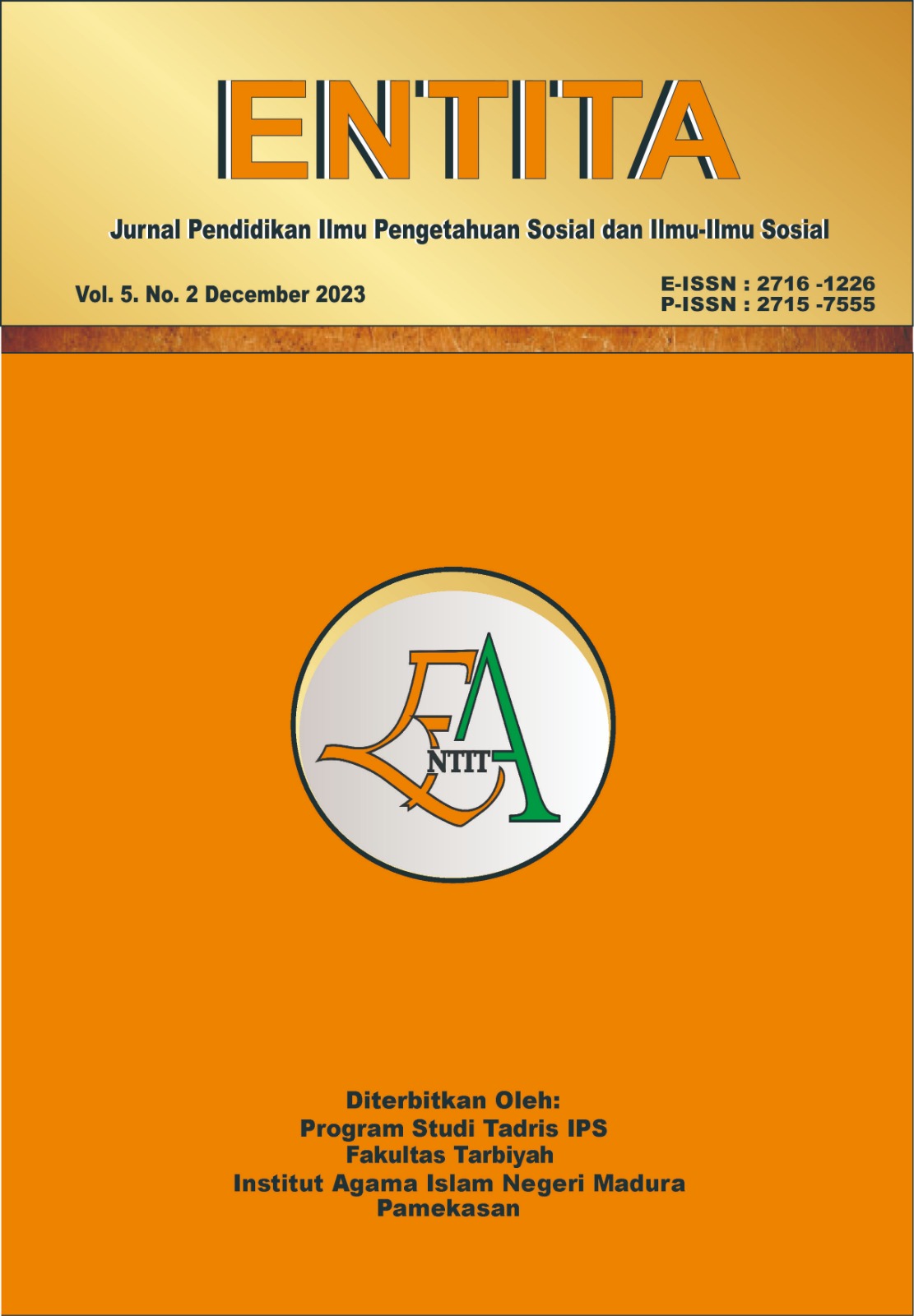Kurdish Community Differences: Potential Conflict and Politics in The Middle East
 Abstract views: 207
,
Abstract views: 207
,
 PDF downloads: 207
PDF downloads: 207
Abstract
The Kurds are the name of an ethnic group that occupies several countries in the Middle East, notably Iraq, Iran, Türkiye, and a small part of Syria. The existence of Kurds who are different from ethnic groups in general has always been seen as a regional problem and treated discriminatorily. Because of this, the Kurds always carry out movements, even rebellions, to fight for political rights. The method used in this research is qualitative research with a library approach. The results of the study show that each Kurdish community spread across each country has differences that are not too prominent. In general, the difference lies in the direction of their movement based on the group leader and the religion they adhere to. Although the majority of Kurds adhere to Sunni Islam, there are also those who practice different religions, such as Christianity, Judaism, Yazidis, and Zoroastrians. Currently, there are still many people who think that the Kurds are a tribe that always causes problems, although there are also those who think that most Kurds want recognition for their existence and special autonomy for the area where they live.
Downloads
References
Ahmed, and Mohammed.(2012). Iraqi Kurds, and Nation-Building. United State: Palgrave Macmillan.
Basyar, M.H. (2015). Pertarungan dalam Berdemokrasi: Politik di Mesir, Turki, dan Israel (The Battle for Democracy: Politics in Egypt, Türkiye and Israel). Jakarta: UI-Press.
Bruinessen, M.V. (2009). Mullas, Sufis and Heretics: The Role of Religion in Kurdish Society. Michigan: Michigan University.
Candramukti, F. G. (2020). Peranan Agama dalam Menyikapi Konflik Komunal pada Pemilihan Presiden Tahun 2019. ENTITA (Jurnal Pendidikan Ilmu Pengetahuan Sosial Dan Ilmu-Ilmu Sosial), 2(2), 245–256.
Chaliand, G. (1993). A People Without Country: The Kurds and Kurdistan. New York: Olive Branch Press.
Gunter, M.M. (1997). The Kurds and The Future of Turkey. New York: St. Martin Press.
Hevian, R. (2013). The Main Kurdish Political Parties In Iran, Iraq, Syria, and Turkey: A Research Guide. Middle East Review of International Affairs, Vol. 17, No. 2.
Kuncahyono, T. (2005). Bulan Sabit di atas Baghdad (Crescent Moon over Baghdad). Jakarta : Kompas.
McDowall, D. (1996). A Modern History of the Kurds. London: I.B Tauris.
Mizan, A.K. (2015). Etnis Kurdi: Perjuangan Memperoleh Otonomi Khusus di Irak (1920-1991) (Ethnic Kurds: The Struggle to Obtain Special Autonomy in Iraq (1920-1991)). Jakarta: Fakultas Adab dan Humaniora UIN Syarif Hidayatullah Jakarta.
Philip G. (2000). Kreyenbroek, and Stefan, S. The Kurds: A Contemporary Overview. London: Routledge.
Romano, D. (2006). The Kurdish Nationalist Movement: Opportunity, Mobilization, and Identity. Cambridge: Cambridge University Press.
Smith, B. (2007). Land and Rebellion: Kurdish Separatism in Comparative Perspective. Florida: The MPSA and University of Florida.
Topan, A. (2022). Respons Aliansi Ulama Madura (AUMA) terhadap Dinamika Politik Keagamaan di Pamekasan Madura. ENTITA: Jurnal Pendidikan Ilmu Pengetahuan Sosial Dan Ilmu-Ilmu Sosial, 4(1), 92–106. https://doi.org/10.19105/ejpis.v4i1.5576
Tezcür, G.M. (2010). When democratization radicalizes: The Kurdish nationalist movement in Turkey. Journal of Peace Research. Vol. 47(6).
Yidliz, K. (2005). The Kurds in Turkey: EU Accesion and Human Right. London: Pluto Press.
White, J.B. (2008). The Cambridge History of Turkey. Turkey in The Modern World Vol. 4. New York: The Cambridge University Press.
Copyright (c) 2023 ENTITA: Jurnal Pendidikan Ilmu Pengetahuan Sosial dan Ilmu-Ilmu Sosial

This work is licensed under a Creative Commons Attribution-NonCommercial 4.0 International License.
ENTITA: Jurnal Pendidikan Ilmu Pengetahuan Sosial dan Ilmu-Ilmu Sosial operates an Open Access policy under a Creative Commons Non-Commercial 4.0 International license. Authors who publish with this journal agree to the following terms:
- The copyright of the received article once accepted for publication shall be assigned to the journal as the publisher with licensed under a

- Journal is able to enter into separate, additional contractual arrangements for the non-exclusive distribution of the journal's published version of the work (e.g., post it to an institutional repository or publish it in a book), with an acknowledgement of its initial publication in this journal.
- Journal is permitted and encouraged to post their work online (e.g., in institutional repositories or on their website) prior to and during the submission process, as it can lead to productive exchanges, as well as earlier and greater citation of published work (see The Effect of Open Access).
- Here is Copyright Transfer Form that author can download and send to OJS during submission.

















